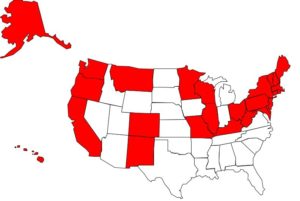This lawsuit is about the right of teachers and other public employees to decide for themselves whether to join and support a union. Unfortunately, the courts are the primary institutional roadblock to individual choice in this area. In a series of decisions going back to the 1950s, the Supreme Court has permitted states to make union membership a condition of public employment. The best known of these cases is Abood v. Detroit Board of Education (1977).
Friedrichs v. CTA makes clear why the Court’s decisions in Abood and several related cases are inconsistent with the principles of free speech and association. The First Amendment provides that the state may not compel speech. Individuals have the right to decide for themselves what speech to support and that part of the right of free speech is the right to refrain from speaking. The First Amendment also guarantees the right of free association, that is, the right to decide for one’s self which groups to join or support.
Making union membership compulsory is an exception to these well-settled principles of free speech and association. As a condition of employment, California teachers must pay $650-$1,000 per year to an organization that promotes a variety of controversial positions both within collective bargaining and outside of it. Teachers have a First Amendment right to decide for themselves whether to support these positions. Unfortunately, the Supreme Court’s past cases in this area have emphasized the state’s interest in “labor peace” at the expense of the rights of individual teachers. Friedrichs is an effort to return to a principled approach to the First Amendment, one that puts the right of teachers and public employees to choose ahead of the interest of the state in promoting harmony in the workplace.

So long as the Supreme Court permits states to make union membership compulsory, it will remain difficult, expensive, and politically divisive to remedy the free speech violation through legislative change. Efforts in Wisconsin, Michigan, and elsewhere make clear that state by state efforts to achieve a legislative remedy are unlikely to address the fundamental denial of free speech rights now occurring in the twenty-six states that have compulsory union dues.

